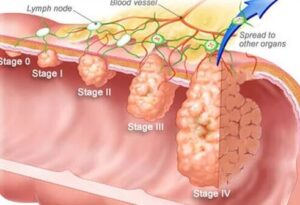What is Organ cancer
Overview
Cancer refers to the uncontrollable growth of abnormal cells in one’s body. They can begin at any organ and tissue and go on to spread throughout one’s body in severe cases. Cancer is a fatal disease affecting at least 39.5% of the population. It’s fatal since it disrupts the oxygen supply to organs and builds up massive waste products. Cancer affecting specific organs is known as carcinoma.
Types
In general, carcinoma can be of 6 types. They are:
- Renal cell carcinoma: It refers to cancer found in the kidney. Usually, older people aged 50-70 are affected by renal cell carcinoma. Early detection and treatment can help to cure it completely.
- Adenocarcinoma: This type of cancer occurs in the epithelial tissues. These tissues line organs and produce substances like mucus and fluids. It is usually found in the breast, stomach, lungs, colon, etc.
- Basal Cell Carcinoma: This type of skin cancer occurs in areas exposed to the sun. Prescribing creams and surgery can help to cure this type of cancer. In a few severe cases, radiation therapy is also opted for.
- Squamous cell carcinoma: Squamous cell carcinoma is one of the most popular types of skin cancer arising from damage caused by the sun’s UV rays. Frequent use of tanning beds and exposure to certain chemicals can increase one’s chances of contracting squamous cell carcinoma.
- Ductal Carcinoma in situ: It’s cancer arising inside the milk duct of a breast. This is usually cured with the help of surgery, followed by radiation therapy. In some cases, patients go under hormone therapy too.
- Invasive Ductal Carcinoma: This type of cancer originates in the milk ducts and spreads to the rest of the breast. It can also spread to the rest of the organs, making it very dangerous.
Causes
The leading causes of organ cancer are:
- Smoking
- Obesity
- Family history of cancer in specific organs like kidney
- Obesity
- Alcoholism
- Inherited syndromes
- Hepatitis
- Cirrhosis
- Chronic bladder infections
- Exposure to chemicals
- Exposure to harmful UV rays
- High blood pressure
Symptoms
Symptoms of organ cancer may include:
- Blood in urination
- Severely painful urination
- Lumps in the stomach
- Weight loss
- Weakness
- Nausea
- Fever
- Swelling in the stomach
- Jaundice
- Loss of appetite
- Fluid discharge from the nipple(other than milk)
- Thickening and redness around the breast
- Lumps in the breast
Diagnosis
Several tests are conducted to diagnose organ cancer; some of them are:
- CT scans
- Bone scans
- MRI scans
- Ultrasound and X-ray
- Biopsy
- Positron emission tomography scan
Treatment
Organ cancer is usually treated through:
- Surgeries
- Radiation and chemotherapy
- Hormone therapy may be required in case of certain breast cancers
- Prescribed creams to cure certain skin cancers completely
Prevention
One can reduce the risks of contracting organ cancer by:
- Quitting smoking
- Quitting alcohol
- Lathering sunscreen on exposed skin before stepping out in the sun
- Maintaining a healthy weight
- Avoiding exposure to harmful chemicals
- Lowering BP
- Maintaining a balanced diet

